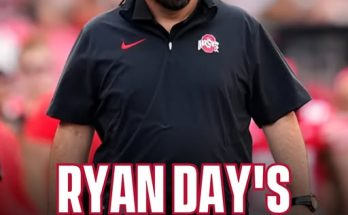The Arizona Cardinals are pushing back against the state in a legal dispute over tourism taxes collected at State Farm Stadium, a fight that could have significant implications for sports franchises and public funding arrangements across the country. At the heart of the issue is a disagreement over whether certain taxes levied on tourism-related revenues at the stadium are being unfairly collected or misappropriated, with the Cardinals arguing that the state has overstepped its bounds.
The lawsuit, filed by the team and the Arizona Sports and Tourism Authority (AZSTA), challenges the state Department of Revenue’s collection and allocation of specific taxes tied to hotel bookings, rental cars, and other stadium-adjacent tourist activities. These fees were originally intended to help fund the construction and maintenance of State Farm Stadium, a publicly owned venue that has hosted everything from Super Bowls to college football playoffs and concerts. However, the Cardinals and AZSTA now argue that the funds are being diverted inappropriately, undermining the financial framework that was agreed upon when the stadium project was first launched.
According to court documents, the Cardinals claim that millions of dollars in tax revenues have been redirected to the state’s general fund instead of being used for their intended purpose. The team contends that this breach of agreement not only violates the original public-private partnership deal but also compromises the long-term sustainability of the stadium and its ability to attract marquee events.
Team officials have pointed to the importance of maintaining a world-class venue that can remain competitive with other major markets. With the ever-growing arms race in professional sports facilities, franchises often lean on innovative revenue streams and public-private partnerships to finance construction and ongoing upgrades. When those arrangements are threatened, it can have a chilling effect on future investment and collaboration.
The state, however, maintains that it has acted within its legal authority. A spokesperson for the Arizona Department of Revenue stated that the taxes in question fall under state jurisdiction and that all collections have been conducted in compliance with current laws and regulations. The department also emphasized its commitment to transparency and cooperation, suggesting that any discrepancies are the result of differing interpretations rather than intentional wrongdoing.
Still, the Cardinals’ leadership has not minced words when discussing what they view as a breach of trust. “We entered into this partnership with the understanding that both sides would honor the commitments made to fund and support a premier sports and entertainment facility,” said one team executive. “When those commitments are not upheld, it jeopardizes everything from the fan experience to the economic impact we bring to the region.”
That economic impact is no small matter. State Farm Stadium has been a major economic engine for Glendale and the greater Phoenix area since it opened in 2006. The venue has brought in billions of dollars in tourism revenue and created thousands of jobs, both directly and indirectly. Events like the Super Bowl and the NCAA Final Four inject significant spending into local hotels, restaurants, and transportation services. When visitors come to town, they generate the very taxes now at the center of the dispute.
Local government officials are watching the case closely, knowing that the outcome could influence future negotiations with sports teams and venue operators. The relationship between municipalities and professional sports franchises has long been a complicated one, with supporters touting economic boosts and civic pride, while critics highlight the potential misuse of taxpayer funds and lack of long-term returns.
Legal experts say the case could set a precedent for how tourism-related taxes are handled in the context of publicly funded sports facilities. If the Cardinals and AZSTA prevail, it could embolden other teams in similar arrangements to scrutinize their own deals and challenge perceived overreach. On the other hand, a ruling in favor of the state could reinforce governmental authority over tax allocation and limit the leverage teams have in future agreements.
The dispute also touches on broader questions about the financing of professional sports in America. For decades, teams have sought public funding for stadiums and arenas, often arguing that the economic benefits to the surrounding area justify the investment. Critics, however, have increasingly pushed back on these claims, arguing that the promised returns rarely materialize to the extent projected. This tension has led to a reexamination of how public funds are used to support private enterprise, particularly in the realm of billion-dollar sports franchises.
In Arizona, the Cardinals’ lawsuit is a microcosm of this national debate. It forces both sides to reassert the terms of their agreement and potentially redraw the boundaries of fiscal responsibility. If the courts side with the Cardinals, it could lead to a reallocation of tourism tax revenues, possibly altering the state’s budgeting priorities. If the state prevails, it may signal that teams must accept a diminished role in dictating how those funds are distributed, even if the facilities they play in rely heavily on them.
For now, the legal battle continues to unfold, with both sides preparing for what could be a prolonged and high-stakes court process. The outcome will likely hinge on the interpretation of contracts, legislation, and historical usage of the funds. Legal analysts predict a complex and nuanced case, one that may ultimately be decided by appellate courts if early rulings fail to provide a definitive resolution.
Meanwhile, fans and residents are left to wonder how the dispute might affect their team and their city. Will the Cardinals face budget constraints that affect stadium upkeep or game-day experiences? Could a protracted legal fight deter future bids for hosting major events? And how will this battle shape the landscape of sports finance in Arizona and beyond?
In many ways, this case is about more than just money. It’s about trust, transparency, and the evolving relationship between public institutions and private enterprise. As sports teams continue to seek new ways to fund their operations and facilities, the rules of engagement are being rewritten in real-time. The Arizona Cardinals’ challenge to the state’s handling of tourism tax revenues is just the latest chapter in this ongoing story, and its resolution will be closely watched by teams, lawmakers, and taxpayers alike.
Regardless of the outcome, one thing is clear: the stakes are high, and the implications far-reaching. Whether the Cardinals emerge victorious or not, the case will likely influence how sports franchises and governments do business for years to come. In a world where billion-dollar deals often hinge on fine print and handshake agreements, this courtroom battle in Arizona could prove to be a game-changer.



